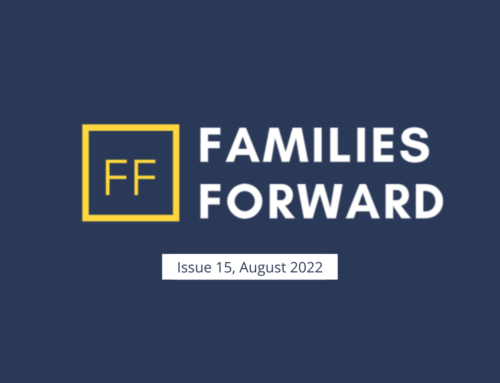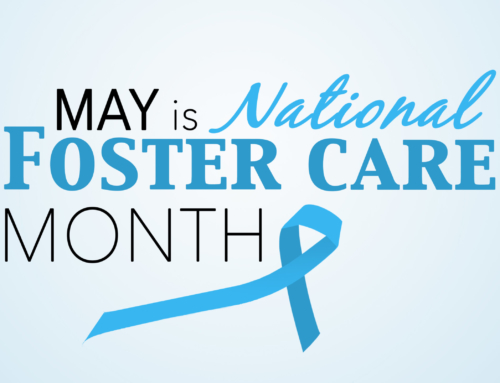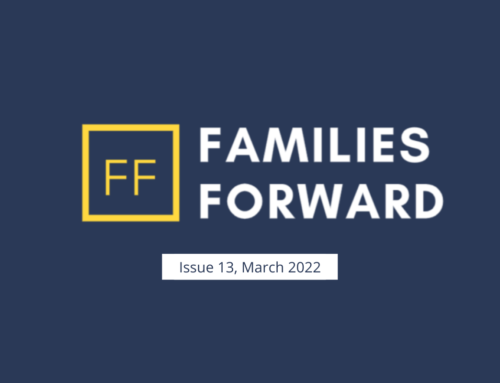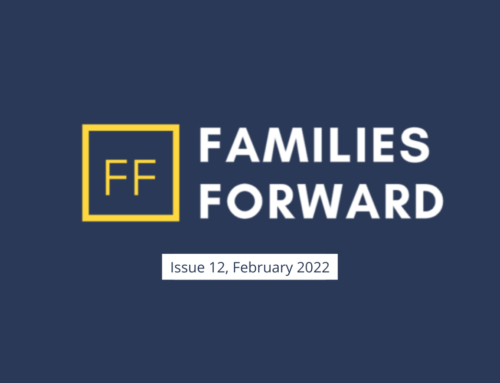What is Foster Care?
Being a foster parent means being a support to families, not a substitute for parents. According to childwelfare.gov, “Foster care is a temporary service provided by states for children who cannot live with their families. Children in foster care may live with relatives or with unrelated foster parents. Foster care can also refer to placement settings such as group homes, residential care facilities, emergency shelters, and supervised independent living.” Foster care originated as a means to provide homes to poor or homeless children. It has greatly changed over the years. Today, children enter foster care for safety reasons related to abuse and neglect. It is meant to be a temporary arrangement where trained foster parents, relatives, or kinship caregivers provide care to a child until that child can be reunited with his or her birth parents.
In some cases, children are not able to return to the care of their birth parents if safety concerns remain. In these cases, the foster parents are asked to provide a permanent home for the child. There are approximately 245 children (according to mare.org) in the state of Michigan who need a permanent home. Some of these children have participated in the Heart Gallery, which is a traveling photographic exhibit featuring photos of youth currently in the foster care system waiting for their forever family. The 2020 Heart Gallery can be viewed virtually on this page https://www.mare.org/Resources/Michigan-Heart-Gallery.
Why Become a Foster Parent? (Motivation and Expectations)
There are many reasons people choose to become foster parents. Some appropriate motives include altruism, desire to nurture children, ability to relate to foster children through shared experiences and teaching them how to overcome these situations. The desire and willingness to provide support to birth parents while they work on a treatment plan to reunite with their children, or becoming a role model for birth parents while showing empathy and being respectful of the birth parents. Some motives that are not appropriate for becoming foster parents are to obtain income, having a foster child to compare to one’s own birth child or to demonstrate a birth child’s “superiority” over another child, wanting a teenager to provide child care or taking placement of a foster child solely for the purpose of doing household chores.
It is important to note that every child is unique as is every situation. It is not reasonable to compare cases or children to one another. For this reason, every foster family should be prepared to need, build and utilize a strong support system including frequent contact with workers, child’s attorney, and therapists; participation in ongoing trainings and support groups; and having several substitute caregivers (family, friends, neighbors, etc.) approved by the agency who are available to assist with childcare or transportation. It is important for a foster parent to receive a child’s history prior to accepting placement, with the understanding that a child’s documented history may not be complete- there may be things that the child experienced that have not been observed or reported (i.e. sexual abuse, learning delays, mental health disorders, etc.). Foster parents must be willing to take every situation day by day and be willing to work with the child to address behaviors, diagnoses, and basic needs. A strong foster parent is always willing to learn more, contributes to the child’s case plan and treatment plan, supports the goal of reunification, utilizes a support system, and understands the importance of self-care.
How foster care has changed since the pandemic started
Since the start of the COVID pandemic, the world of foster care has significantly changed. Court hearings that used to be held in person are now being held via Zoom or being adjourned until they are able to be held in person- for some cases, trials have been continuously adjourned for over a year. This delays the child from achieving permanency and the child remains in foster care until the judge makes the final decision regarding parental rights and the permanency goal for the child (continue having a goal of reunification or change the goal to adoption). Another change has been children participating in online schooling and foster parents struggling to find childcare during the day if they need to work. Foster parents have lost a lot of their in person supports, such as workers coming to the home and therapists providing in person services. Workers and therapists have been conducting visits and therapy sessions virtually rather than in person. There have been significant delays with obtaining services for children due to COVID and with service providers working from home. It has also been difficult for children and birth families to have parenting time or family visits virtually rather than in person. Another significant change has been a struggle with foster parents accepting placements of children for a variety of reasons including fear of contracting the virus, scheduling conflicts, lack of support, or inability to secure childcare, to name a few. Forever Families has experienced over half of our licensed foster parents with an open bed for a child decline placement for a variety of reasons since the pandemic began.
Despite the significant changes in the world since the pandemic, child welfare staff continue to work towards developing and building a more conventional and supportive system for the children and families we serve. The use of technology such as video calls or electronic signatures has become a part of our daily lives. As in person contact with children and foster parents is not as frequent, phone or video calls are occurring more often to ensure that the families and children are receiving what they need. Workers are able to assist with making referrals for services, follow up regarding time frames for the referrals to be accepted and assisting to identify and approve additional supports for families.









